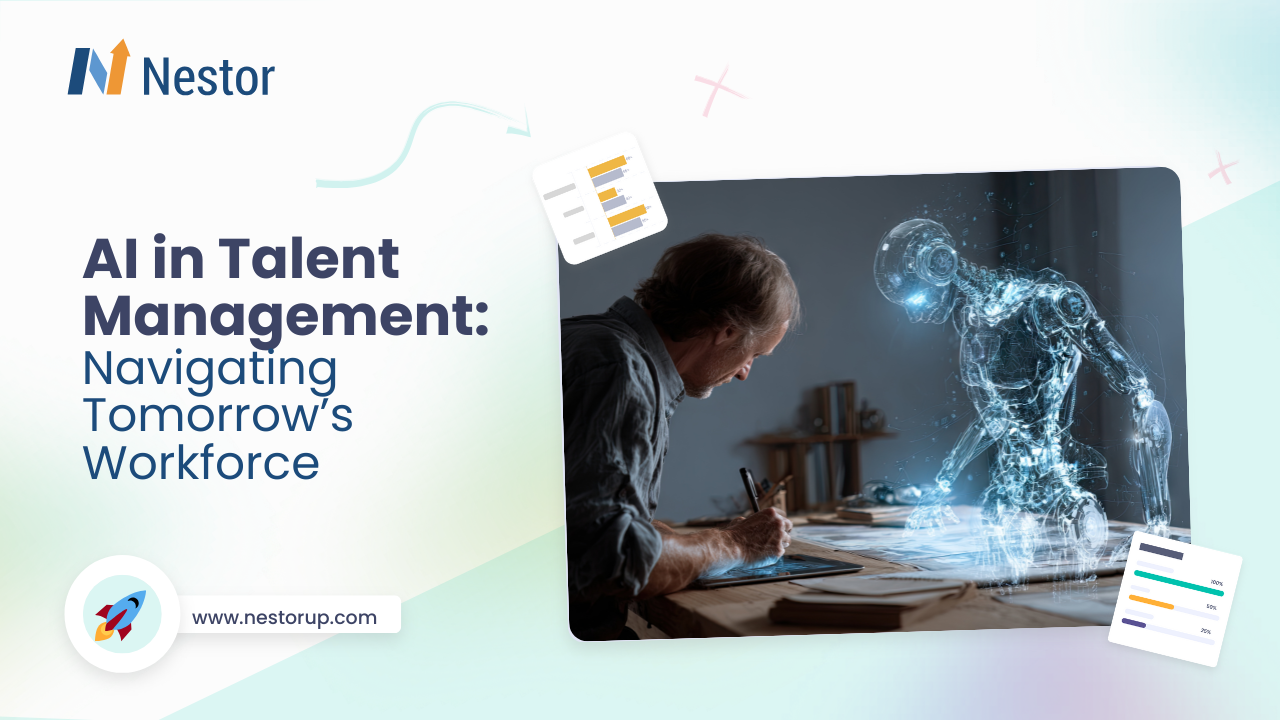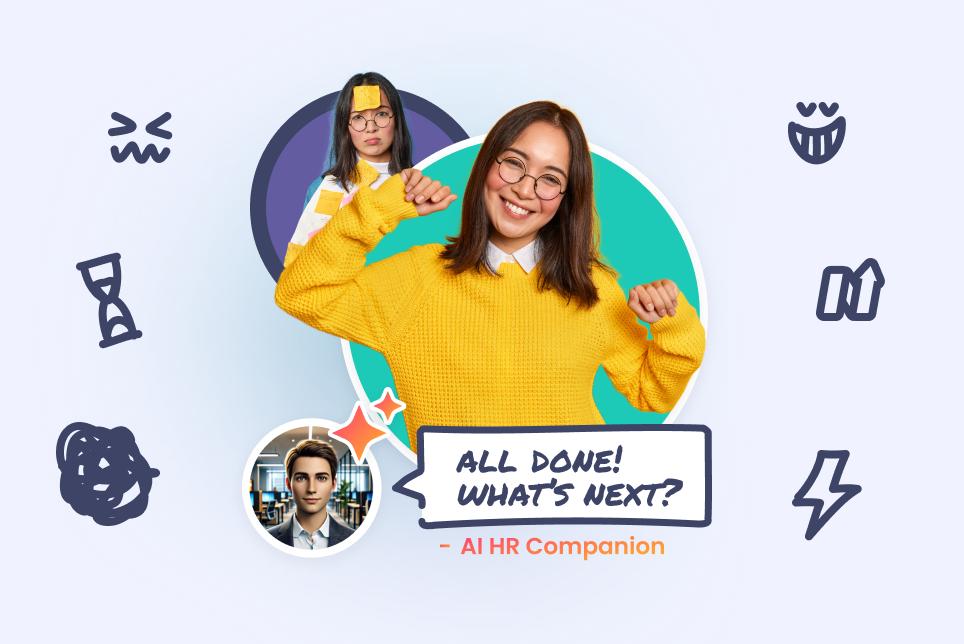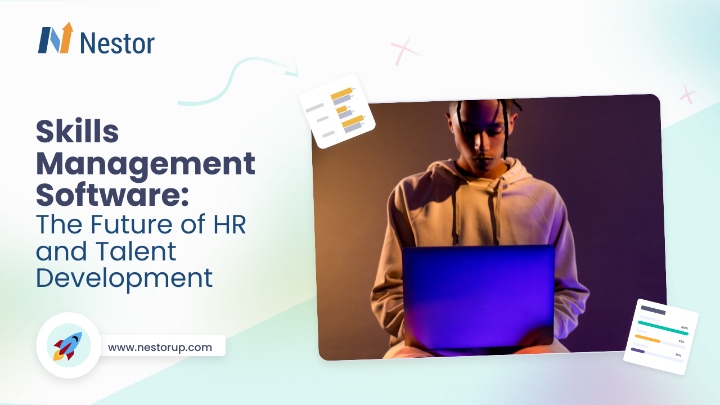
Contents
In the vast expanse of organizational evolution, where every decision shapes the trajectory of success, talent management stands as the cornerstone of strategic growth. As businesses navigate the winds of change and innovation, traditional talent management methodologies often struggle to keep pace with the dynamic demands of the modern workforce and the complexities of a rapidly evolving business landscape. However, with the emergence of artificial intelligence (AI) technologies, a new era of talent management has dawned, offering unparalleled insights, efficiency, and agility to organizations across industries.
As organizations strive to do more with less, AI presents a compelling solution for unlocking new efficiencies across the talent lifecycle. By leveraging AI-driven talent management solutions, businesses can expedite candidate identification, streamline recruitment processes, and ultimately, build stronger, more agile teams poised for success in today’s competitive landscape.
According to a Deloitte report, almost two-thirds (65%) of organizations report that AI technologies are enabling them to move ahead of the competition. Furthermore, 63% of leaders already view AI as “very” or “critically” important to their business success, with that number expected to grow to 81% within two years.
So, as we journey through the realm of AI-powered talent management, it begs the question: What exactly are the benefits that your organization can reap from these advancements? How can you leverage these innovations to not only overcome the challenges of today but also proactively sculpt the workforce of tomorrow? Join us as we uncover the answers and unlock the full potential of AI in talent management.
The Transformative Power of AI in Talent Management
AI is not just a buzzword; it’s a game-changer, offering transformative capabilities that redefine the way organizations attract, develop, and retain talent. At the heart of AI-powered talent management lies the ability to unlock valuable insights into workforce capabilities. By leveraging advanced algorithms and data analytics, AI enables organizations to gain a deeper understanding of their workforce skill sets, strengths, engagement levels and aspirations in the workplace. From skills mapping to performance analysis, AI provides actionable intelligence that empowers organizations to make informed decisions and drive strategic initiatives.
Revolutionizing the recruitment process, technology is expediting, refining, and enhancing its efficiency like never before. With AI-powered tools, organizations can sift through vast amounts of data to identify top candidates, predict their likelihood of success, and even assess cultural fit. By automating repetitive tasks and reducing bias, AI empowers recruiters to concentrate their efforts on cultivating relationships and strategically selecting candidates who are more likely to stay with the organization for extended periods.
One of the most significant benefits of AI in talent management is its ability to personalize development opportunities for employees. By analyzing individual skills, experiences, and career aspirations, AI can recommend tailored learning paths and development opportunities. Whether it’s suggesting relevant training programs or identifying stretch assignments, AI empowers employees to take ownership of their development and unlock their full potential.
Moreover, AI plays a crucial role in talent management that goes beyond mere recruitment and development; it serves as the bedrock of skills mapping endeavors within organizations. Ultimately, it establishes the groundwork for intelligent workforce planning. Through the utilization of AI-powered algorithms and data analytics, companies can acquire thorough insights into the skills landscape of their workforce. This smooth transition from recruitment to skills mapping highlights the comprehensive approach organizations are adopting to refine their talent strategies and foster success in today’s competitive market.
1. The Intersection of Skills Mapping and AI
Central to AI-driven talent management is the ability to gain comprehensive insights into workforce capabilities in close relationship to the job roles through skills mapping. By analyzing vast volumes of data on employee skills, experiences, and performance metrics, AI-powered systems create intricate maps that visualize the skills landscape within an organization. This holistic understanding enables organizations to identify key strengths, areas for improvement, and strategic opportunities for talent development and optimization.
Skills mapping enables organizations to move beyond surface-level assessments, delving into the intricate details of employees’ skills, experiences, and proficiencies. According to the World Economic Forum, a staggering 66% of organizations are currently leveraging some form of skills mapping to ensure that their employees and teams have the skills needed to navigate uncertainty and drive organizational success.
Amidst this shift, a 2021 American Institutes for Research report sheds light on the success stories of 10 employers, including industry giants like IBM, Comcast, and the U.S. Office of Management and Budget, who have seamlessly integrated skills-based practices into their employee development initiatives. These companies have followed a structured approach, which includes identifying and defining necessary skills, measuring skills, incorporating skills validation and tracking into existing HR infrastructure, and finally, identifying the benefits and outcomes of this work.
This strategic blueprint not only highlights the importance of skills mapping but also demonstrates its practical implementation within leading organizations. By integrating skills-based practices into their talent management strategies, these companies have been able to gain a comprehensive understanding of their workforce capabilities and readiness for the future. The data collected through this process allows organizations to identify critical knowledge gaps, tailor training and development programs, and make informed decisions about resource allocation and talent acquisition.
Moreover, the success stories outlined in the report underscore the transformative impact of skills mapping on organizational performance and agility. By leveraging AI-powered tools to map out skills within their workforce, organizations can proactively address skill deficiencies, foster a culture of continuous learning and development, and position themselves for long-term success in today’s competitive market.
One of the key advantages of AI in skills mapping is its ability to identify and define necessary skills with a high degree of accuracy. By leveraging natural language processing (NLP) and machine learning algorithms, AI can analyze job descriptions, competency frameworks, and industry standards to identify the specific skills required for different roles within the organization. This ensures that skills mapping efforts are aligned with business objectives and industry standards, providing organizations with actionable intelligence to make informed decisions.
Furthermore, AI facilitates the measurement and tracking of skills over time, enabling organizations to monitor changes in employee capabilities and identify areas for improvement. Through AI-driven analytics, organizations can identify skill gaps, track skill development progress, and forecast future skill needs, empowering them to proactively address skill deficiencies and cultivate a workforce that is equipped for the challenges of tomorrow.
2. AI-Powered Skills Suggestions
AI-powered suggestions are emerging as a game-changer in identifying and maximizing workforce capabilities. These AI-driven tools revolutionize the traditional approach to skills mapping, offering organizations unparalleled insights into their employees’ skills and untapped potential. This proactive approach not only accelerates the process of completion of employee skills profiles but also ensures that employees are equipped with the requisite skills to thrive in an increasingly competitive market.
With the advent of AI-powered suggestions, HR and business leaders gain access to sophisticated algorithms that analyze vast amounts of data to uncover hidden talents and recommend personalized skill development opportunities. These suggestions draw from diverse data sources, including performance reviews, training histories and project involvements to provide a comprehensive understanding of employees’ skills and competencies.
Moreover, AI suggestions facilitate the identification of emerging skill trends and provide tailored recommendations for skills development and training initiatives. By analyzing market data and industry trends, AI-powered tools can identify the skills that are most in-demand and provide guidance on how organizations can align their talent strategies to meet evolving business needs.
Furthermore, AI suggestions play a crucial role in connecting employees with opportunities for career growth and advancement. By matching employees’ skills and interests with available roles, projects, or learning opportunities, AI-powered platforms empower individuals to explore new career paths and maximize their potential within the organization.
Nestor, a leading skills-based talent management platform, offers AI suggestions as part of its comprehensive suite of solutions. Nestor’s AI-powered suggestions leverage dynamic skills taxonomies to provide organizations with actionable intelligence on their workforce’s skills landscape.
With Nestor’s platform, organizations gain more than just a talent management solution—they gain a strategic partner dedicated to unlocking the full potential of their workforce.
3. Empowering Growth through Personalized Skill Development
One of the distinguishing features of AI in talent management is its ability to provide personalized recommendations for skills development. By analyzing individual employee profiles, performance data, and career aspirations, AI can tailor recommendations for skills enhancement programs that align with organizational goals and individual needs.
This tailored approach begins with a thorough analysis of each employee’s skills inventory and career trajectory. By considering factors such as current job requirements, future career aspirations, and emerging industry trends, AI can pinpoint the most relevant skills for each individual.
Once these skill gaps are identified, AI generates personalized recommendations for skills development initiatives. These recommendations may include a variety of learning opportunities, such as online courses, workshops, mentorship programs, or on-the-job training experiences. By curating a customized learning path for each employee, organizations can ensure that their workforce is equipped with the skills and knowledge needed to thrive in their roles.
Consider the case of Sarah, a marketing manager at a leading tech company. Through AI-driven analysis of Sarah’s performance data, career trajectory, and industry trends, the talent management system identified a gap in her digital marketing skills, crucial for the company’s upcoming product launch campaign.
Based on this insight, the system generated personalized recommendations for Sarah’s skills development; a series of online courses and webinars, opportunities for hands-on experience through cross-functional projects within the company, and mentorship sessions with seasoned digital marketing experts.
Excited by the prospect of enhancing her skills and contributing more effectively to the company’s success, Sarah enthusiastically embraced the recommendations. Over the following months, she immersed herself in the suggested learning opportunities, applying newfound knowledge to her day-to-day tasks and collaborating with colleagues on innovative marketing initiatives.
As the product launch campaign progresses, Sarah’s improved digital marketing skills play a vital role in its success. Her smart ideas and creative methods boost engagement to unprecedented levels, taking the campaign to new heights. This achievement earns Sarah praise from customers and industry colleagues alike. Additionally, her newfound digital marketing expertise earns her respect within the marketing team, leading to recognition and chances for career growth within the company.
This example illustrates the transformative impact of personalized recommendations for skills development in talent management. By leveraging AI-driven insights to identify skill gaps and tailor learning opportunities to individual needs, organizations can empower employees like Sarah to unlock their full potential and drive engagement.
4. AI’s Role in Matching Talent with Opportunities
AI facilitates the smart matching of talent with job opportunities and projects, ensuring optimal utilization of skills and resources. By analyzing data on employee skills, preferences, and job requirements, AI-powered systems can identify the best matches between individuals and roles within the organization. This strategic alignment not only enhances productivity and efficiency but also fosters employee satisfaction and retention.
According to a recent report by PwC, more than 35% of workers surveyed revealed they possess skills that are not evident from their CVs or job histories. This statistic underscores the notion that companies may be overlooking valuable talent within their ranks, highlighting the importance of leveraging AI-driven talent-matching solutions to uncover hidden skills and maximize human capital utilization.
One of Nestor’s flagship features is its Talent and Opportunity Marketplace, which leverages AI smart-matching to connect talent with gigs, projects, or new open roles based on their skills and preferences. This innovative marketplace ensures that individuals with the right skills are matched with the right opportunities, maximizing productivity and fostering a culture of innovation.
As organizations navigate the complexities of the modern business landscape, the ability to effectively match talent with opportunities emerges as a critical strategic imperative. By embracing AI-powered talent matching solutions like Nestor’s Talent and Opportunity Marketplace, organizations can unlock the full potential of their workforce, driving productivity, innovation, and sustainable growth.
5. Navigating Change with Fast Talent Redeployments
In today’s fast-paced business environment, organizations must be agile and responsive to changing market conditions and internal needs. AI enables fast talent redeployment by providing leaders with real-time insights into the skills available within the organization. In times of urgency or shifting priorities, AI-powered systems can swiftly identify and redeploy talent with the requisite skills to other areas of the business, ensuring continuity and effectiveness in operations.
Drawing insights from LinkedIn’s Future of Work Report 2023, it becomes evident that the pace of change in job requirements is accelerating at an unprecedented rate. Over the past eight years, the average LinkedIn member has experienced a significant shift of 25% in the skills demanded by their roles. However, the trajectory is set to escalate even further with the integration of AI technologies into the workforce. Projections indicate that by 2030, this figure is expected to surge to at least 65%, signaling a profound transformation in the skills landscape.
As organizations brace themselves for this seismic shift in job requirements, the ability to redeploy talent quickly and effectively becomes paramount. AI-driven talent redeployment solutions offer organizations a competitive edge in this regard. By leveraging advanced algorithms and real-time data analytics, these platforms can identify skill mismatches, predict future talent needs, and facilitate rapid redeployments to address emerging challenges or capitalize on new opportunities.
For example, consider a scenario where a sudden surge in customer inquiries necessitates additional support staff. With traditional methods, identifying and deploying suitable candidates to meet this demand could be time-consuming and labor-intensive. However, with AI-powered talent redeployment solutions, HR leaders can instantly identify employees with relevant skills, assess their availability, and seamlessly transition them into customer-facing roles, ensuring uninterrupted service delivery and customer satisfaction.
Moreover, AI-driven talent redeployment not only enhances operational efficiency but also promotes employee engagement and retention. By empowering employees to explore new opportunities within the organization and take on diverse roles that align with their skills and interests, organizations can foster a culture of continuous learning and growth. This, in turn, leads to higher levels of job satisfaction, increased loyalty, and reduced turnover rates.
6. Dynamic Career Paths
The era of fixed career trajectories has faded into the past. Thanks to AI, dynamic career paths are now within reach, offering tailored routes for individual development and advancement. Through the analysis of employee data, market dynamics, and organizational requirements, AI can propose personalized career paths that harmonize with both individual ambitions and organizational goals. This individualized strategy not only cultivates employee engagement and loyalty but also ignites innovation and bolsters competitiveness.
For instance, consider a scenario where a software engineer expresses interest in transitioning into a product management role. Through AI-powered career pathing, HR professionals can analyze the engineer’s existing skills, performance data, and career objectives, alongside market insights and organizational strategies, to chart a personalized development plan. This plan might include targeted training programs, mentorship opportunities, and cross-functional projects aimed at equipping the engineer with the necessary skills and experiences for success in their desired role.
Moreover, AI-driven dynamic career paths foster a culture of continuous learning and adaptability, empowering employees to navigate their professional journeys with confidence and purpose. By offering transparent and flexible pathways for growth and progression, organizations can attract top talent, retain key personnel, and cultivate a workforce that is not only proficient but also passionate and motivated to drive organizational success.
Research by LinkedIn underscores the importance of internal mobility in fostering employee retention and satisfaction. According to LinkedIn’s 2023 report, workers who have made an internal move at their organization at the two-year mark have a 75% chance of remaining there, compared to 56% for those who haven’t. This statistic highlights the significant impact of offering dynamic career paths and internal growth opportunities on employee tenure and organizational stability.
In essence, AI-powered dynamic career paths represent a paradigm shift in talent management, offering a transformative approach to nurturing talent, fostering innovation, and achieving sustainable growth in today’s dynamic business landscape. As organizations embrace this evolution, they position themselves as leaders in attracting, developing, and retaining top talent, thereby securing a competitive edge in the ever-evolving marketplace.
Final Thoughts
The integration of AI in talent management represents a transformative shift in how organizations approach workforce optimization and development. By embracing AI-powered tools and platforms, organizations can revolutionize their talent management practices and build agile, high-performing teams poised for success.
Think about it: AI doesn’t just help you see what skills your team already has; it shows you the skills they didn’t even know they had. And when it comes to developing those skills, AI doesn’t just offer generic advice; it serves up tailor-made recommendations that speak directly to each individual’s aspirations and potential.
But perhaps the most exciting thing about AI in talent management is its ability to match the right people with the right opportunities in the blink of an eye. No more wasting time sifting through resumes or playing matchmaker; AI does the heavy lifting for you, ensuring that every project is staffed with the perfect team for the job.
And let’s not forget about the agility that AI brings to the table. In today’s fast-paced world, organizations need to be able to pivot at a moment’s notice, and AI enables just that. With its ability to visualize internal skills in real time and facilitate fast talent redeployments, AI ensures that your organization is always one step ahead of the curve. The future of talent management is here, and it’s driven by AI.










